Over the past 4 years, Project CaNE™ has provided growers with on-ground agronomic support and tailored
solutions to help them improve productivity, profitability and environmental outcomes on their farm.
See the Report Card.


Over the past 4 years, Project CaNE™ has provided growers with on-ground agronomic support and tailored
solutions to help them improve productivity, profitability and environmental outcomes on their farm.
See the Report Card.
Lower Herbert water quality program factsheet.
The uniqueness of the region sitting across the wet and dry
tropics makes it highly suitable for growing sugarcane.
Yet, as one of the most intensively cropped regions, this area
presents a challenging balance for growers in managing
fertiliser and pesticide losses from paddocks.
With the support of Project CaNE, funded by the partnership between the Australian Government’s Reef Trust and the Great Barrier Reef Foundation, HCPSL is offering Herbert growers the opportunity to receive free EM mapping. The Project CaNE EM mapping initiative is open to all Herbert sugarcane growers and will run until January 2025.
The initiative includes access to agronomic advice from Project CaNE Extension Agronomists and drone technology that will assist with the investigation and validation of crop management decisions based on EM mapping, soil testing and crop productivity constraints.
Growers seeking more information or wanting to register their interest in being involved in the EM mapping initiative should contact our HCPSL GIS officer Rod Nielson by calling the HCPSL office on 47761808.
Tuesday 26th March, 2025.
Commencing at 8:15am to 12:00 midday
At Ingham Station, 181 Fairford Road
Bus Transfer from the Soccer Grounds will be available on the day.
Presentations and Displays will include:
The Herbert Sugar Industry Awards will be presented after the displays followed by a BBQ lunch.
Please RSVP for catering purposes by 22nd March to Sandra Coco, HCPSL on 4776 1808
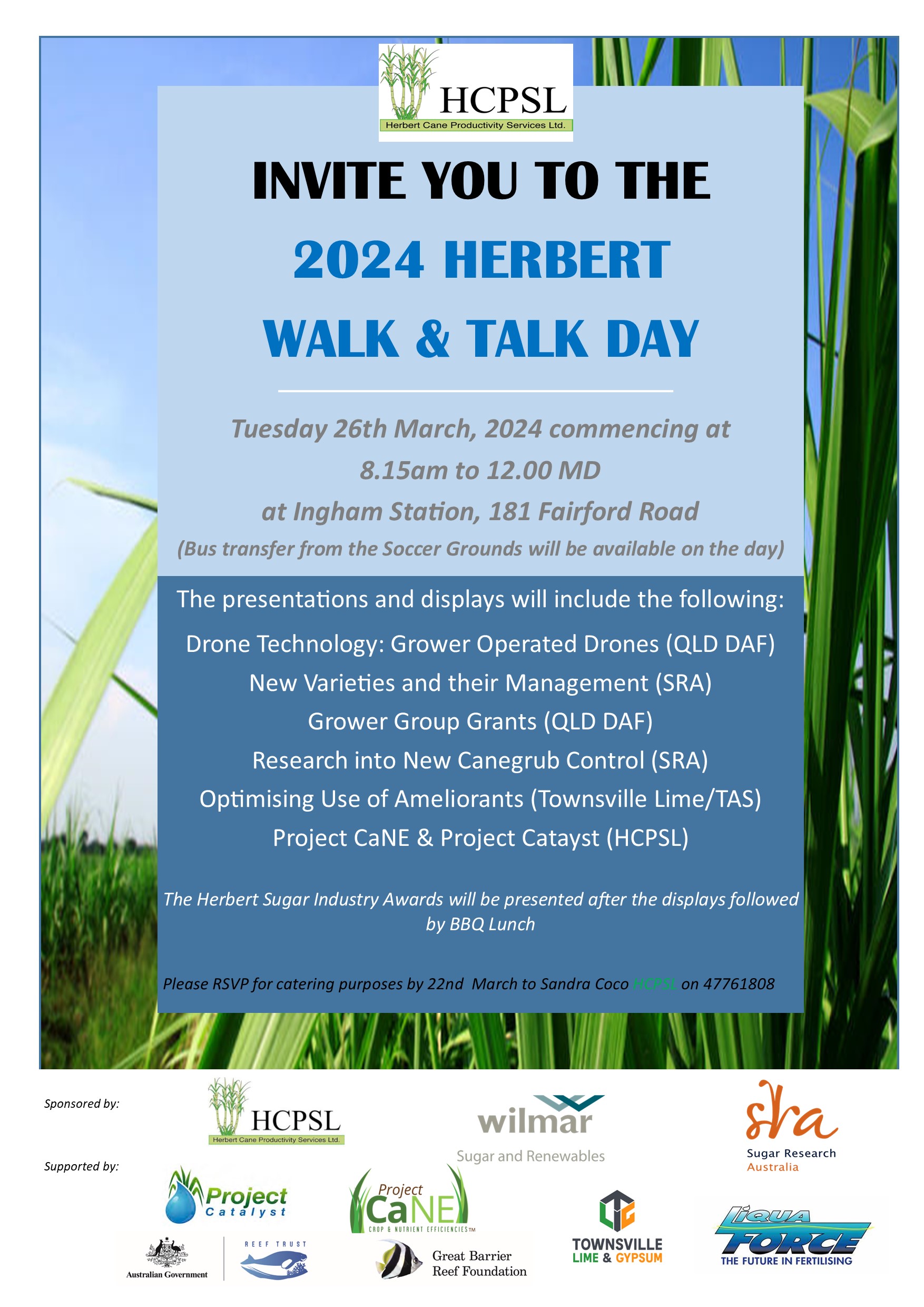
Earlier this week, projects under the Lower Herbert Water Quality Program (LHWQP) presented to Ingham State High School Ag students.
HCPSL staff members from Project CaNE and Project Catalyst had the opportunity to discuss and share knowledge with around 30 Year 10 and 11 students studying Agriculture.
The Project Catalyst team discussed soil testing, in particular how soil pH affects crop growth and nutrient availability. Students were eager to get practically involved by carrying out pH testing with a simple in-field testing kit.
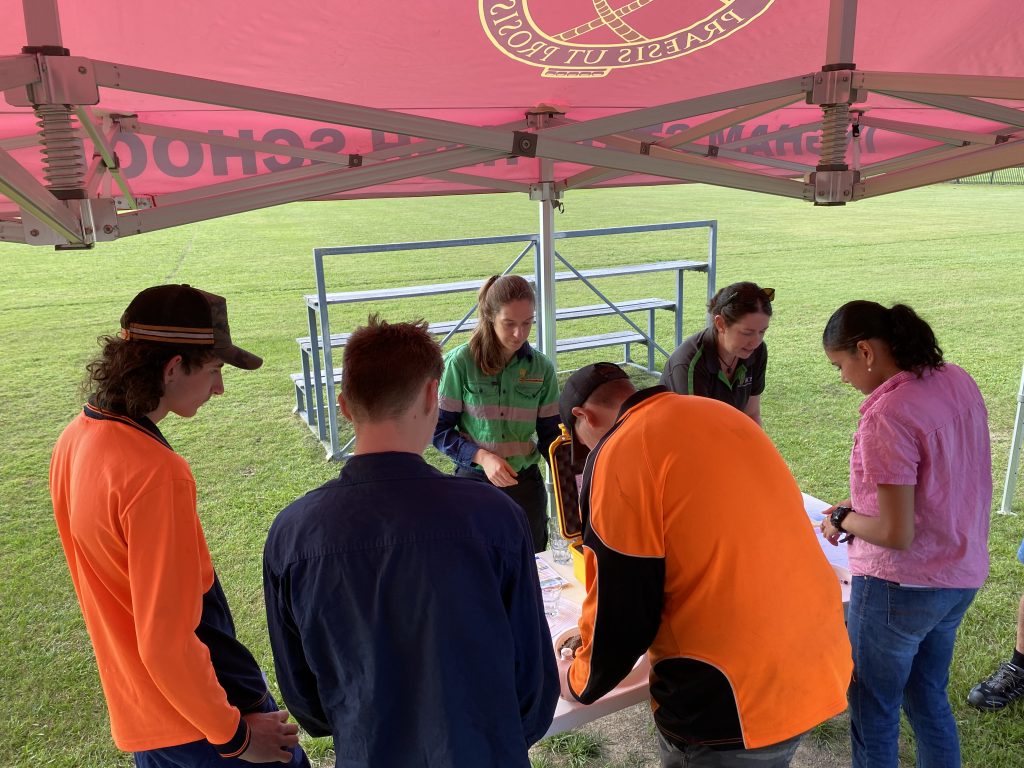
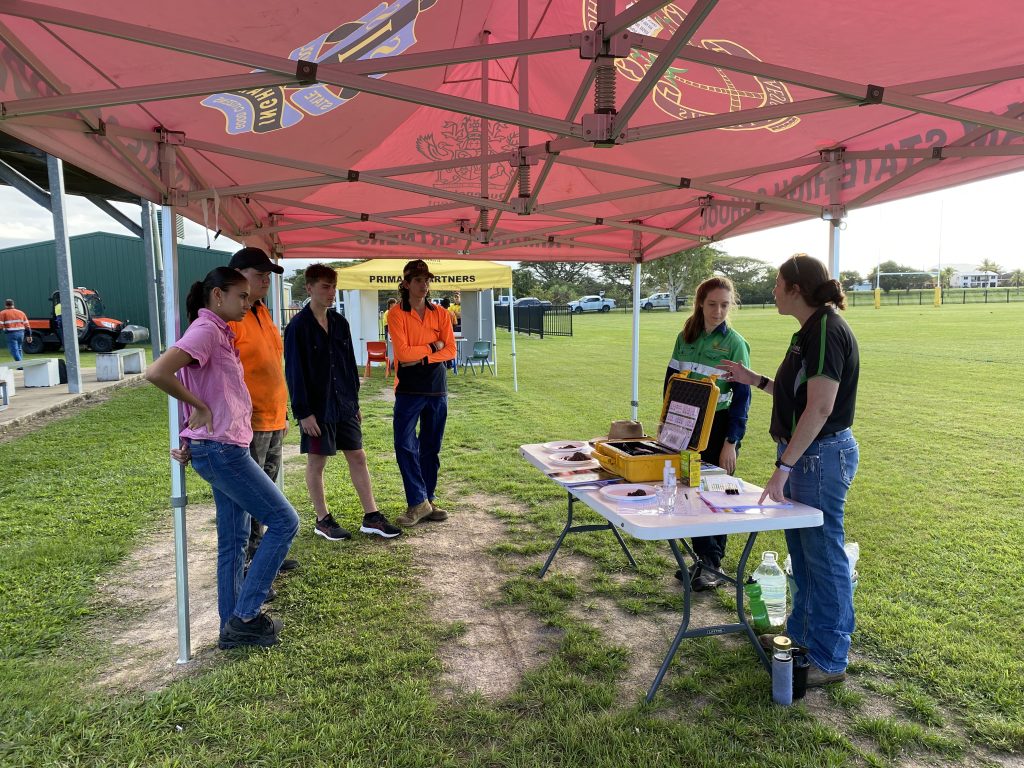
Project CaNE, together with TropWATER provided students an understanding on sugarcane crop nutrition as well as water quality. Aaron Davis from TropWATER gave students insight into water quality monitoring and sampling.
Additionally, HCPSL & Project CaNE GIS Officer Rod Nielson showcased the use of drone technology in agriculture and how precision agriculture is being applied to the Herbert cane industry.
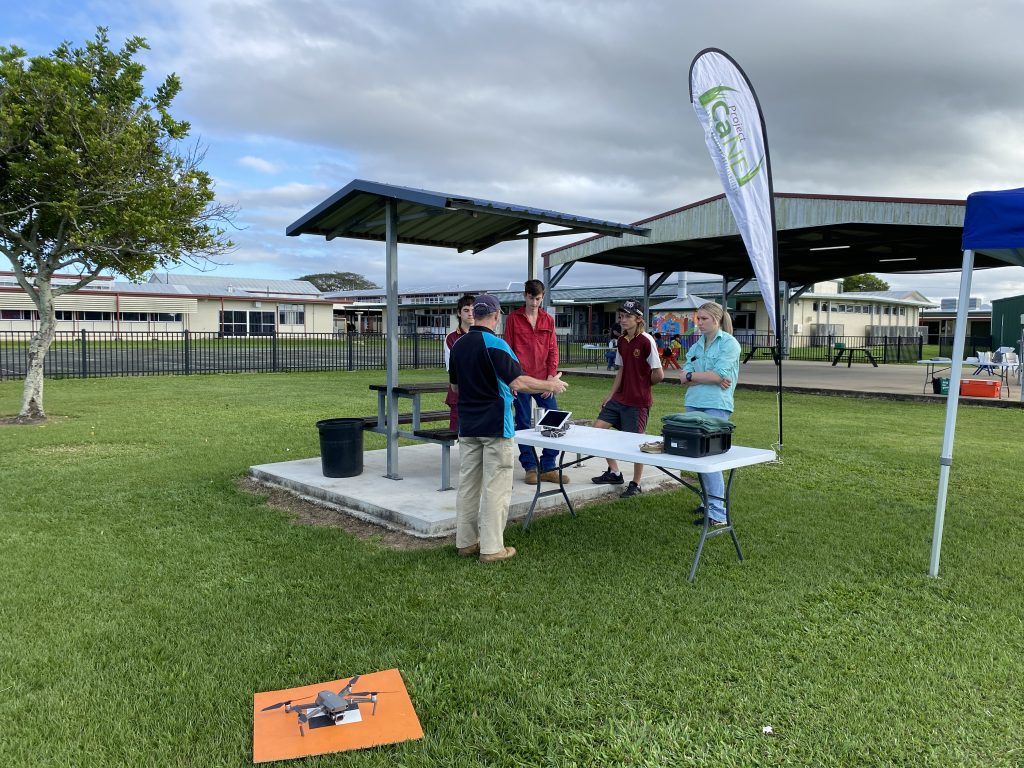
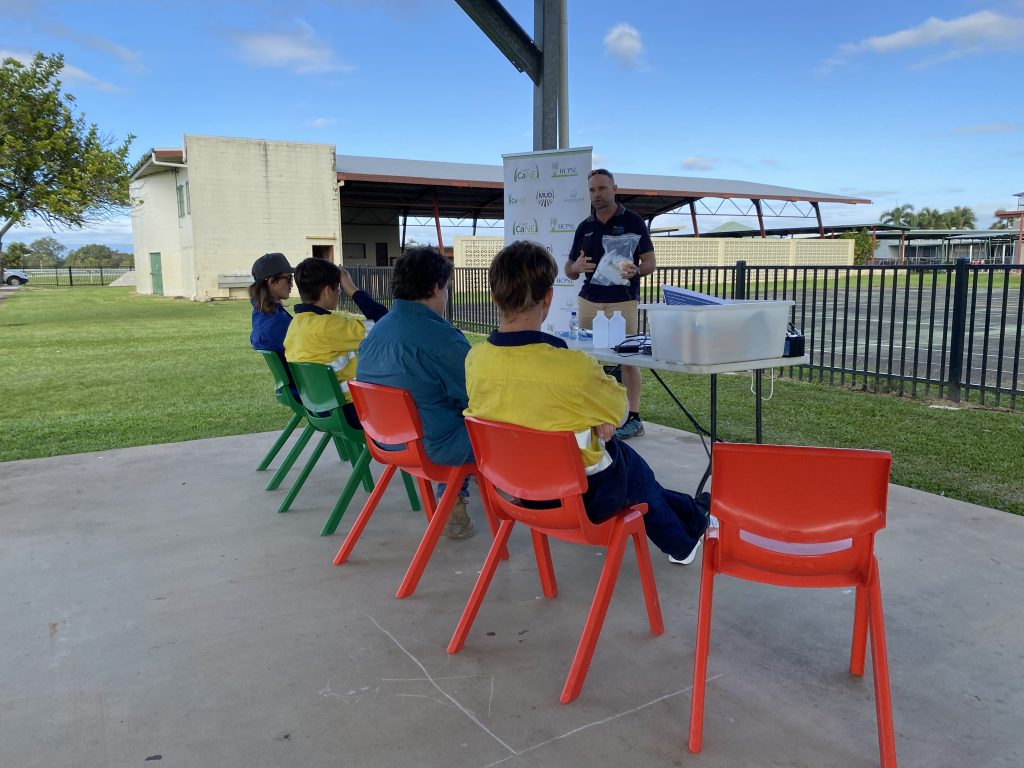
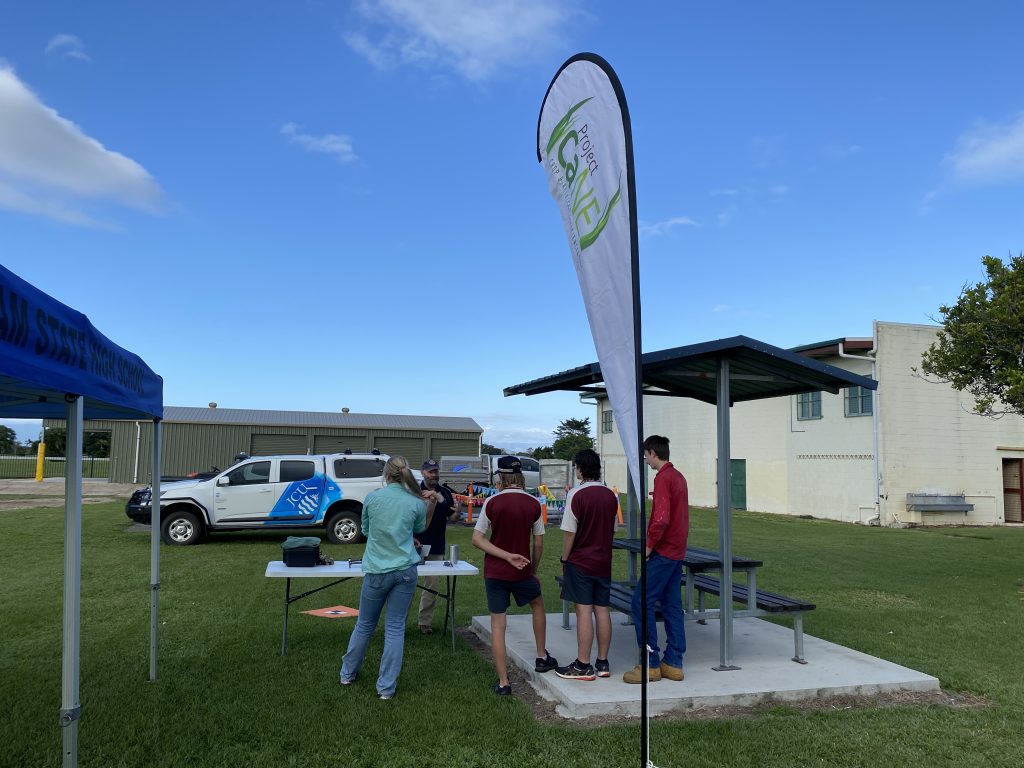
Thanks to Ingham State High for hosting and LHWQP Program Coordinator Carola Bradshaw for organizing a great event. HCPSL value the opportunity to share knowledge and discuss topics with passionate local ag students.
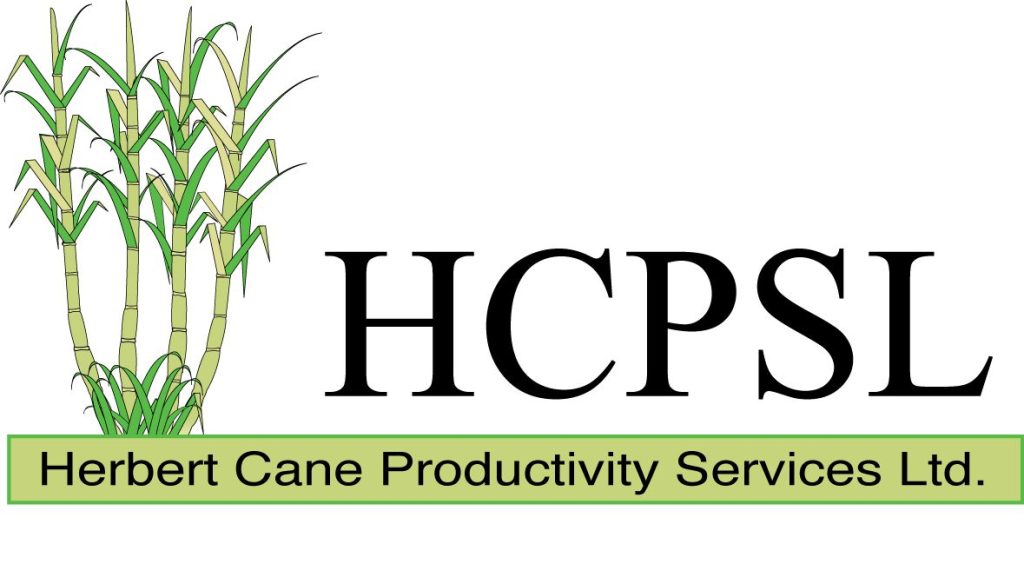
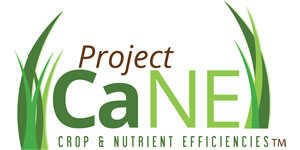
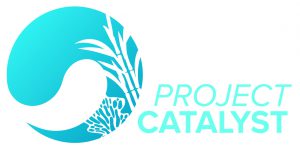

Project CaNE™ and Project Catalyst are funded by the partnership between the Australian Government’s Reef Trust and the Great Barrier Reef Foundation.
Recently, HCPSL GIS Officer, Rod Nielson presented on the Hinchinbrook Community Feral Pig Management Program’s Project Squealer at the SRA Herbert Field Day. The field day featured various presentations and demonstrations from SRA technical staff and researchers, including – An overview of the Herbert Productivity Plan, Imidacloprid research, managing smut issues, and balancing nutrient inputs.
Rod from the HCPSL team, provided Herbert growers with insight into the technology currently being used for managing feral pigs under Project Squealer. Throughout the day Rod also chatted with Herbert farmers on the range of precision agriculture services HCPSL offers.
If you’d like to know more about precision ag, drones or GIS technology, please contact HCPSL on (07) 4776 1808 to speak with Rod.
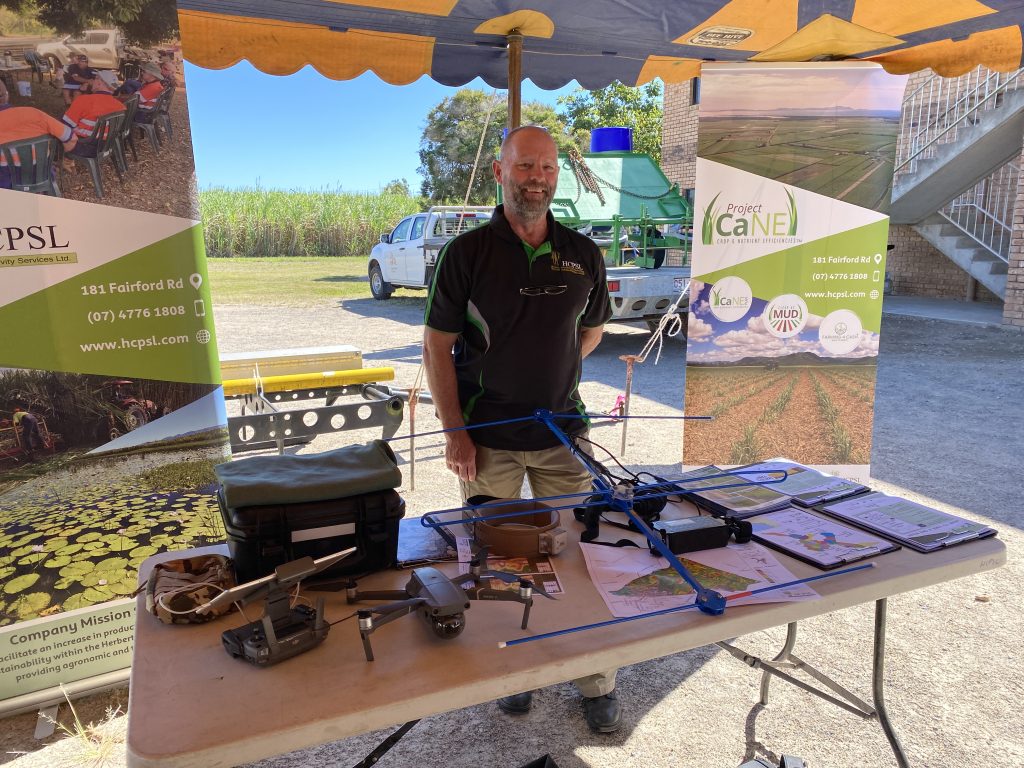
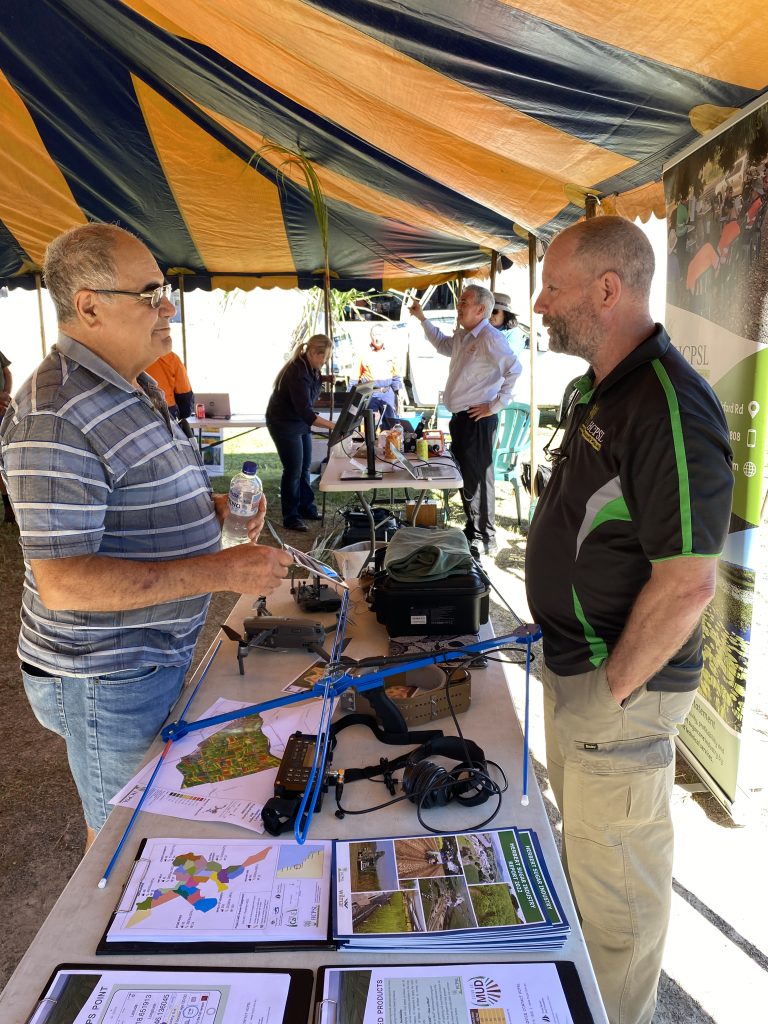
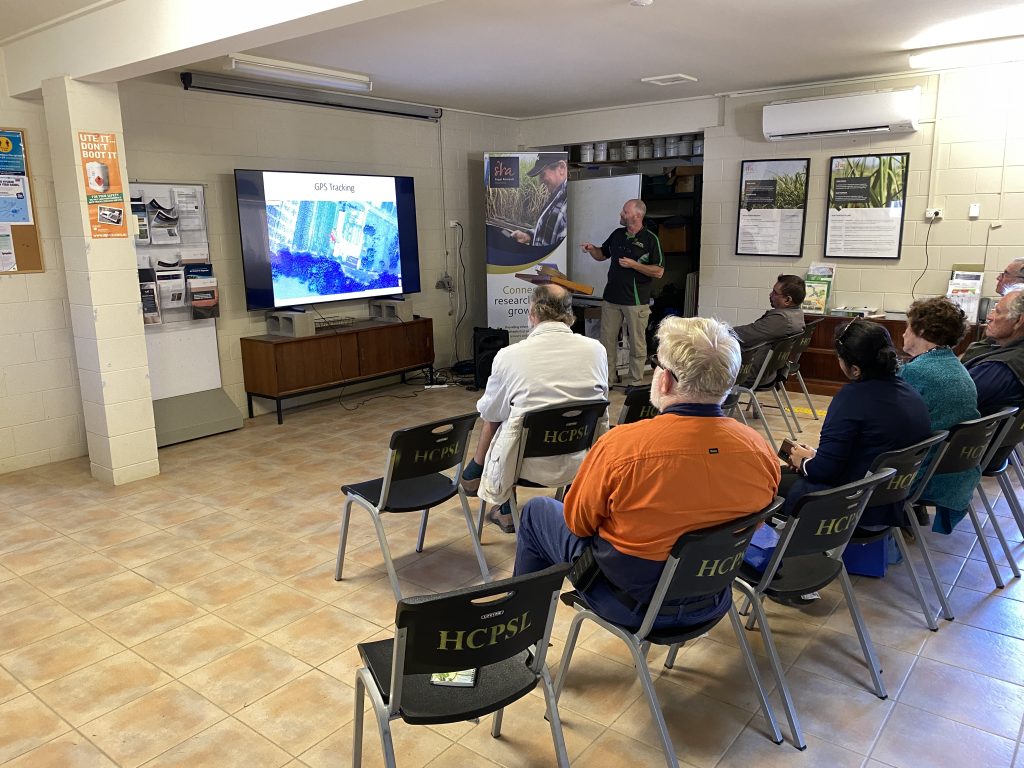
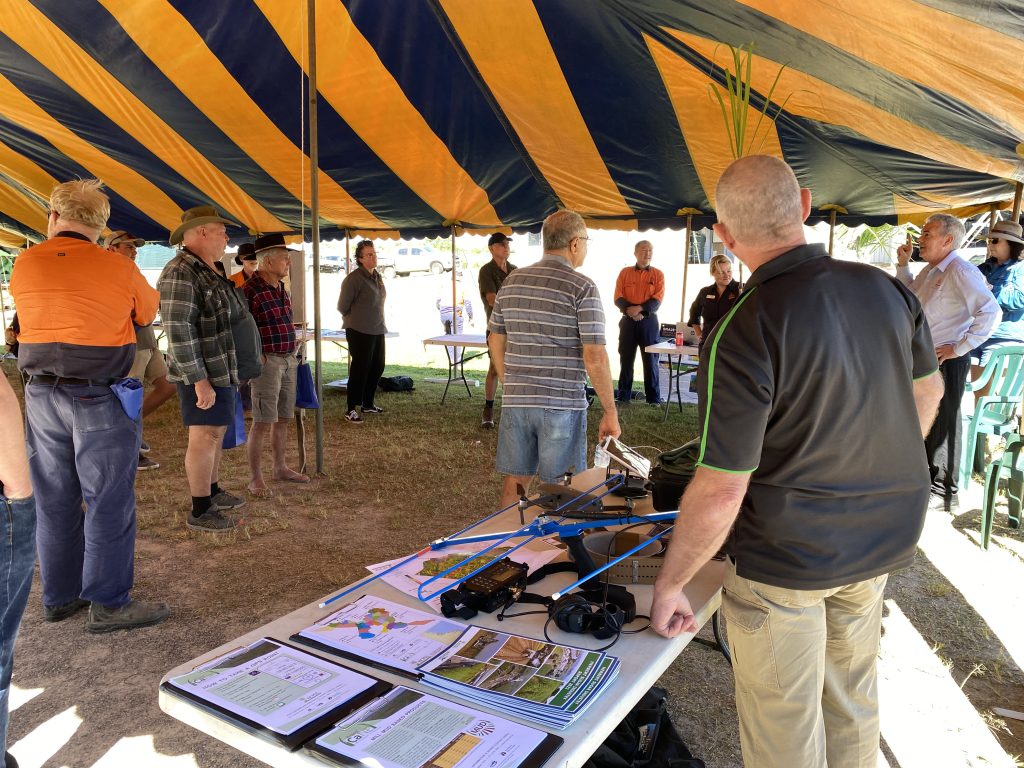
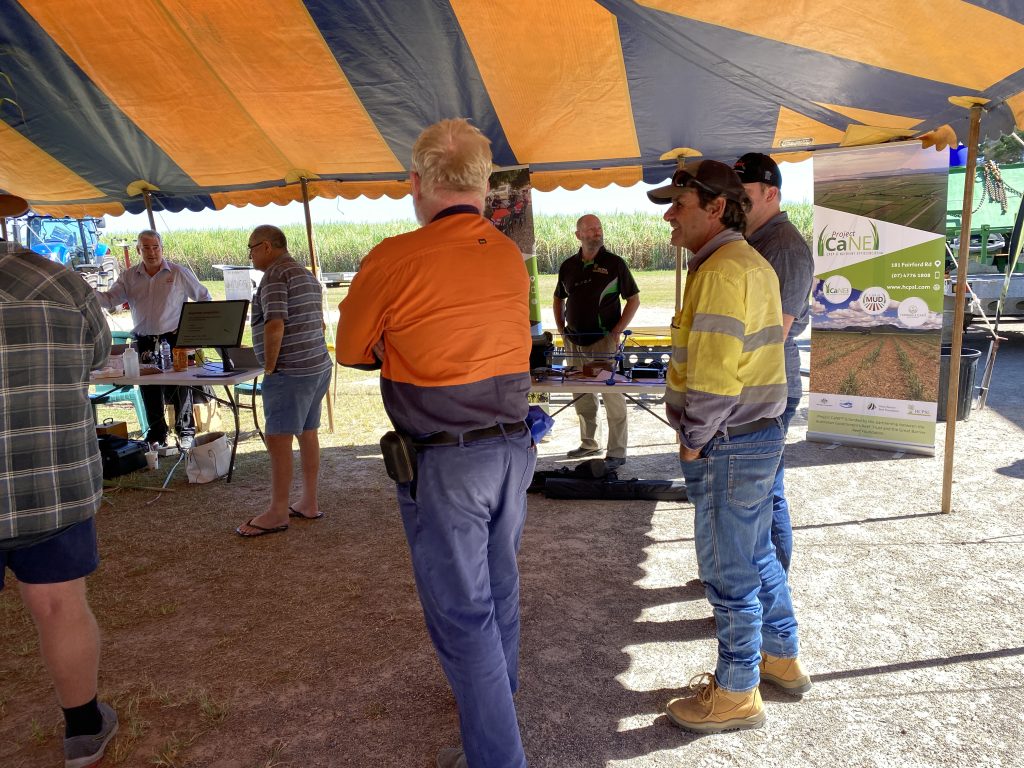
This week HCPSL attended the Hinchinbrook Find Your Future Careers Expo. Staff spoke with students considering subject choices and future careers in and around agriculture. The team had some great questions from students on drone technology, the meaning of soil pH , and the many pathways to becoming an agronomist and finding a career in the sugarcane industry.
Thanks to the students who chatted with the HCPSL team!
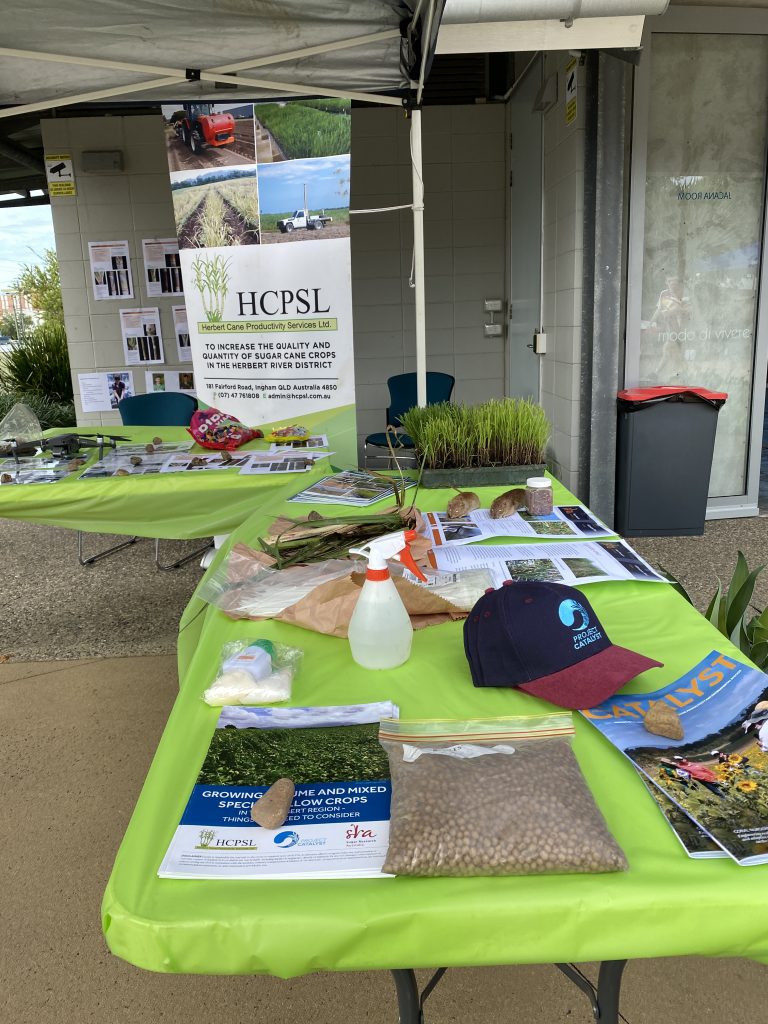
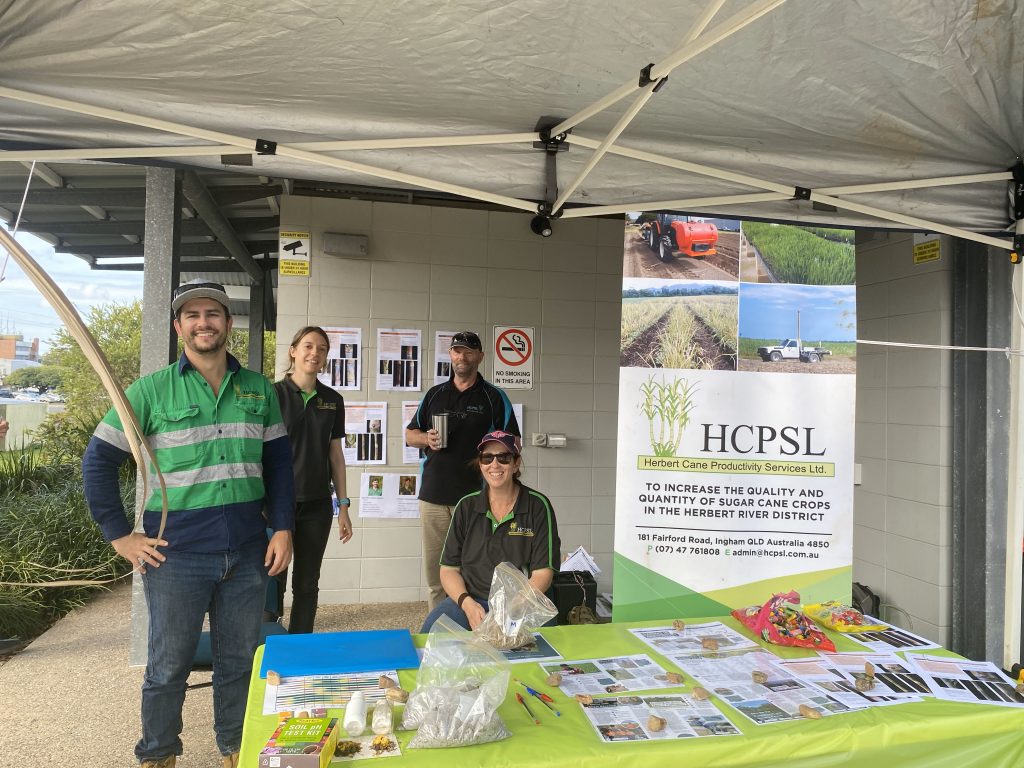
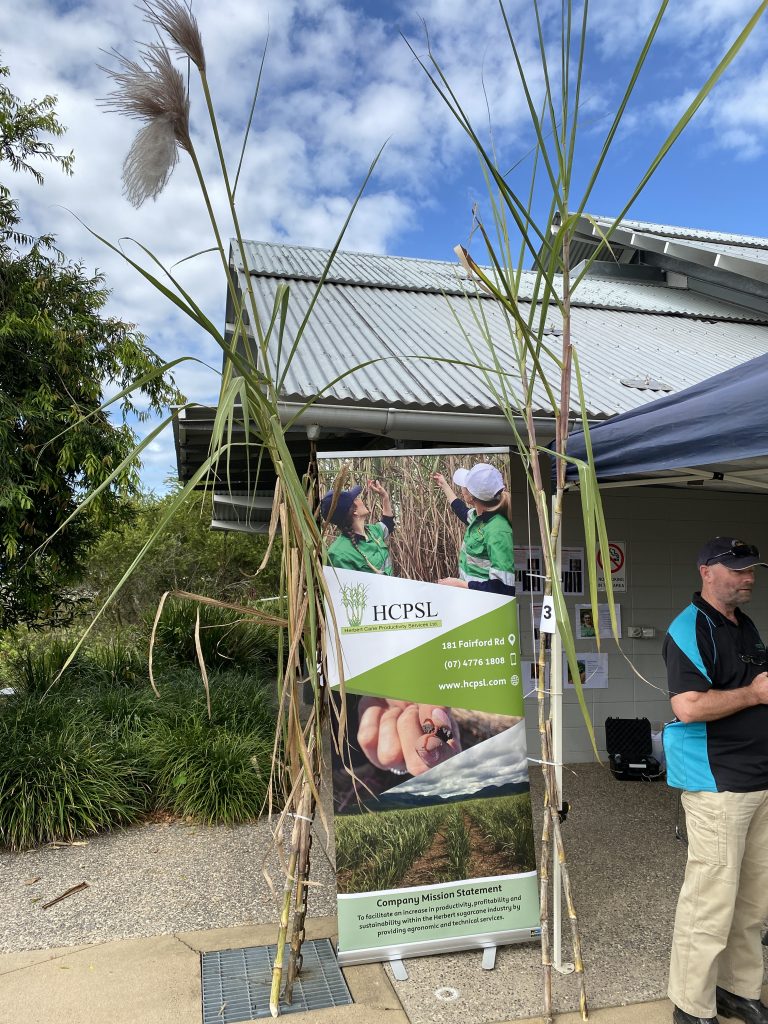
With current fertiliser prices, it is essential, now more than ever, that your fertiliser blend and rate is matched to crop requirements.
Taking a soil sample ensures you are not over or under applying specific crop nutrients. By taking a soil sample, a HCPSL agronomist can provide you with tailored nutrition advice, ensuring adequate crop nutrition and minimising unnecessary input application.
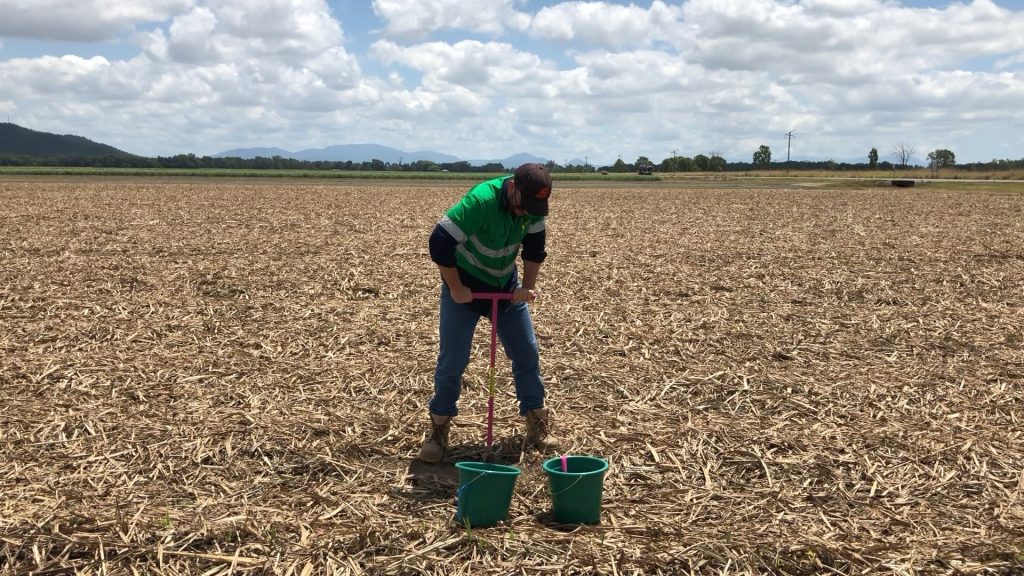
To make sampling easier, visit the HCPSL Office to borrow a soil auger.
If you’d like more information or advice on soil sampling, please contact HCPSL on (07) 4776 1808.
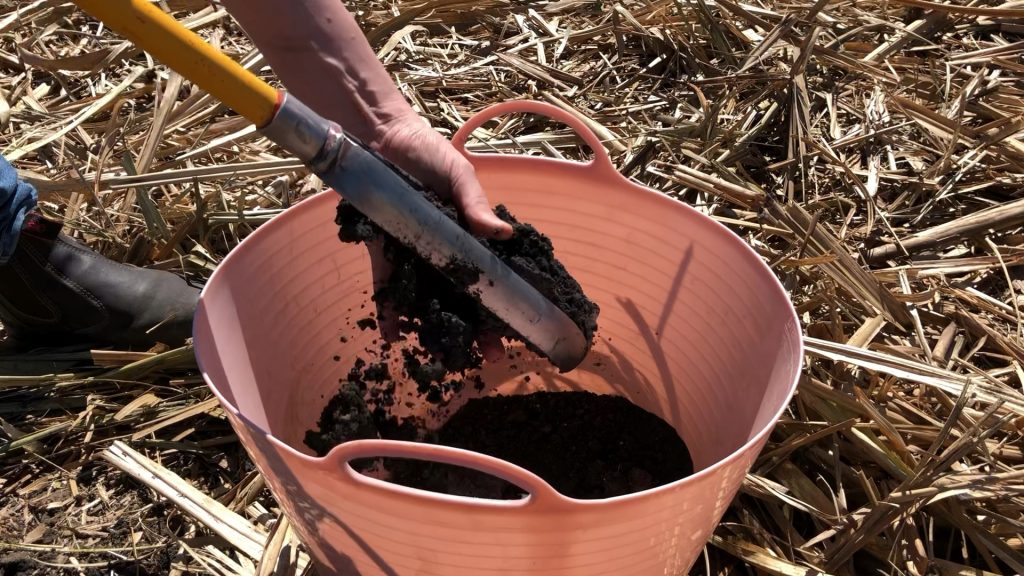
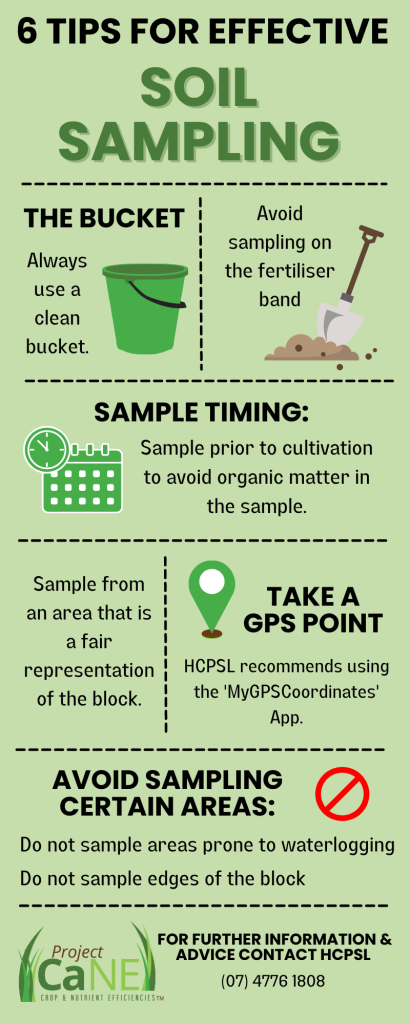
Project CaNE™ is funded by the partnership between the Australian Government’s Reef Trust and the Great Barrier Reef Foundation.



Grower Incentive Grants made it possible for Herbert growers to invest in new machinery by receiving financial support to better improve water quality associated with on-farm nitrogen management practice changes and the results in Nitrogen run-off are evident.
Results from a trial in the Abergowrie area conducted by the Queensland Government, HCPSL, James Cook University and Terrain NRM in 2013 revealed sub-surface fertiliser application reduced runoff losses of Nitrogen, phosphorus and Sulphate-S from recent applications when compared to surface applications in the Herbert Catchment.
The application of fertiliser provides essential nutrients to enhance sugarcane growth and yield. The rate of application and where fertiliser is placed in the soil profile influences plant uptake and the loss through runoff and deep drainage.
HCPSL Company Manager Lawrence Di Bella, who participated in the study stated, “The findings from this study clearly shows sub-surface applications of both liquid and granular fertilisers had a positive impact on reducing nitrogen runoff from cane farms. The study also looked at cane yields from the various practices to find that broadcast applications of fertiliser on the soil surface had lower yields when compared to other methods. These results are a win-win for the environment and growers’ hip pocket.”
Grower Incentive Grants are part of the Major Grants Project and the Lower Herbert Water Quality Program (LHWQP). Funded by the Reef Trust Partnership the aim is to improve the quality of water flowing from the Herbert River catchment to the Great Barrier Reef lagoon while at the same time improving productivity and profitability of the Herbert sugar industry.
The Lower Herbert Water Quality Program aims to prevent 140 tonnes of dissolved inorganic nitrogen from entering the Great Barrier Reef lagoon from the Herbert River catchment each year. Under the Reef 2050 plan to reduce runoff of dissolved inorganic nitrogen the Herbert River is one of the highest priority river catchments. The $16.2 million program is funded by the partnership between the Australian Government’s Reef Trust and the Great Barrier Reef Foundation with coordination support provided by CANEGROWERS Herbert River.
More information and interviews: Jason Wolfgram | Communications Manager – Lower Herbert Water Quality Program | 0436 469 018

Earlier this week, the Project CaNE Team met with project funders, the Great Barrier Reef Foundation (GBRF) – who visited Project CaNE growers across the Herbert to gain an on-ground understanding of the projects in the Lower Herbert Water Quality Program. The GBRF team, were interested to hear from Project CaNE growers who shared their experiences and thoughts, and provided valuable feedback to funders for the future.
The visit allowed the Project CaNE team and growers to share in how the project has assisted and supported growers in the Herbert to improve practices that not only benefit productivity and profitability, but also water quality.
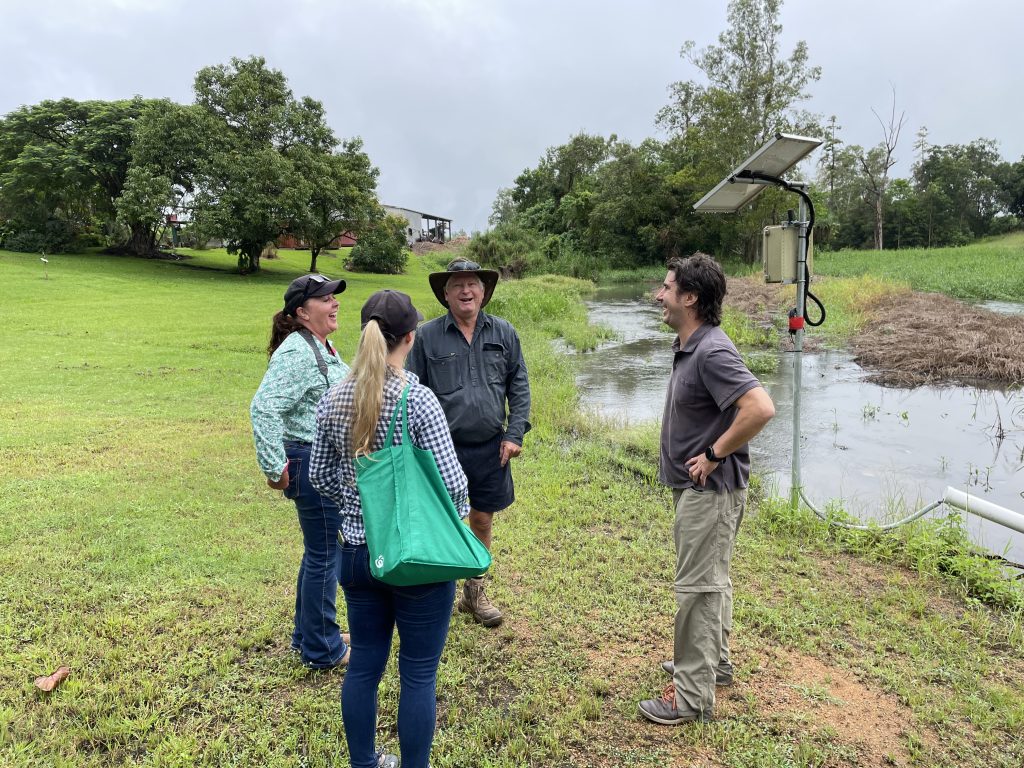
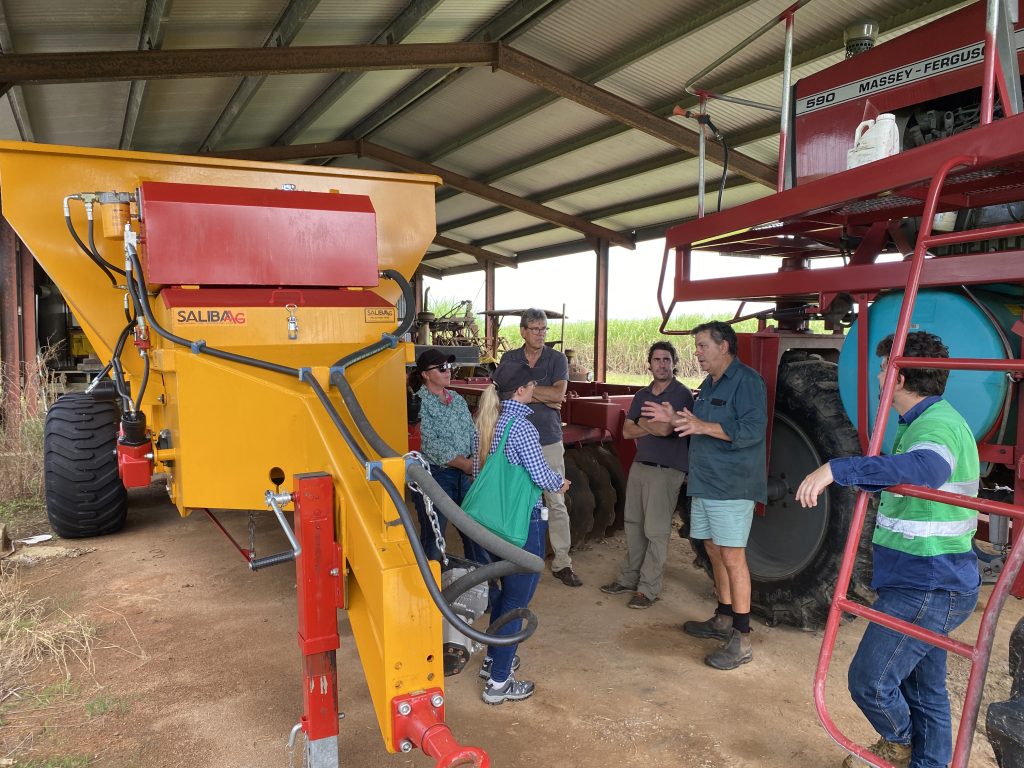
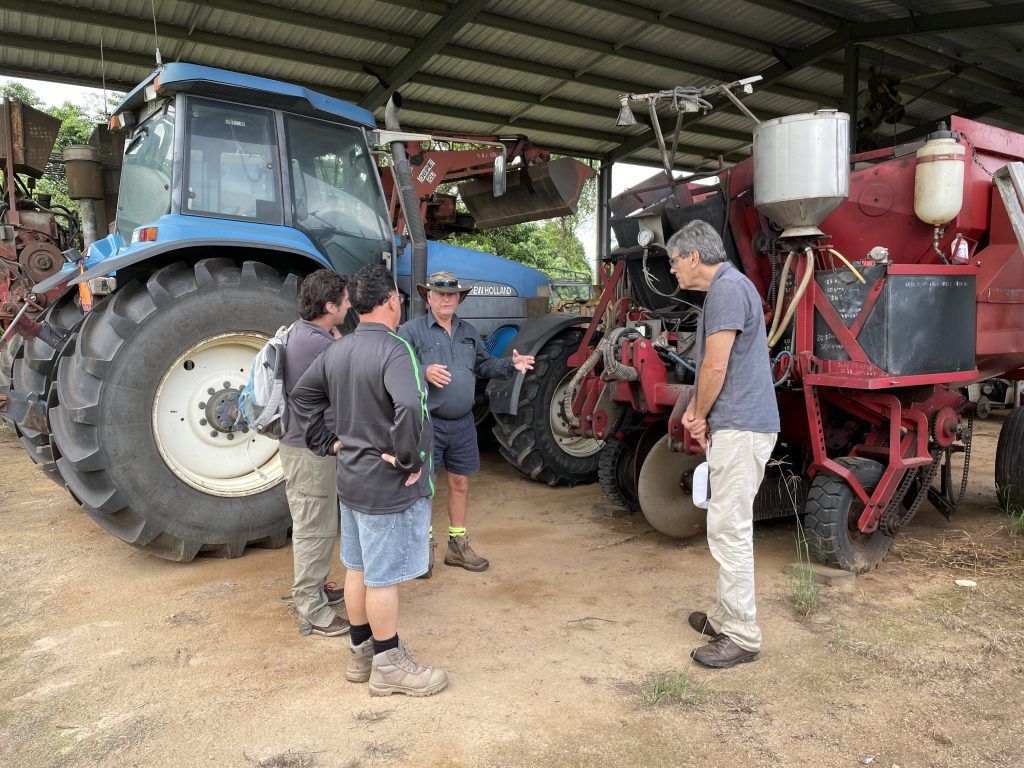
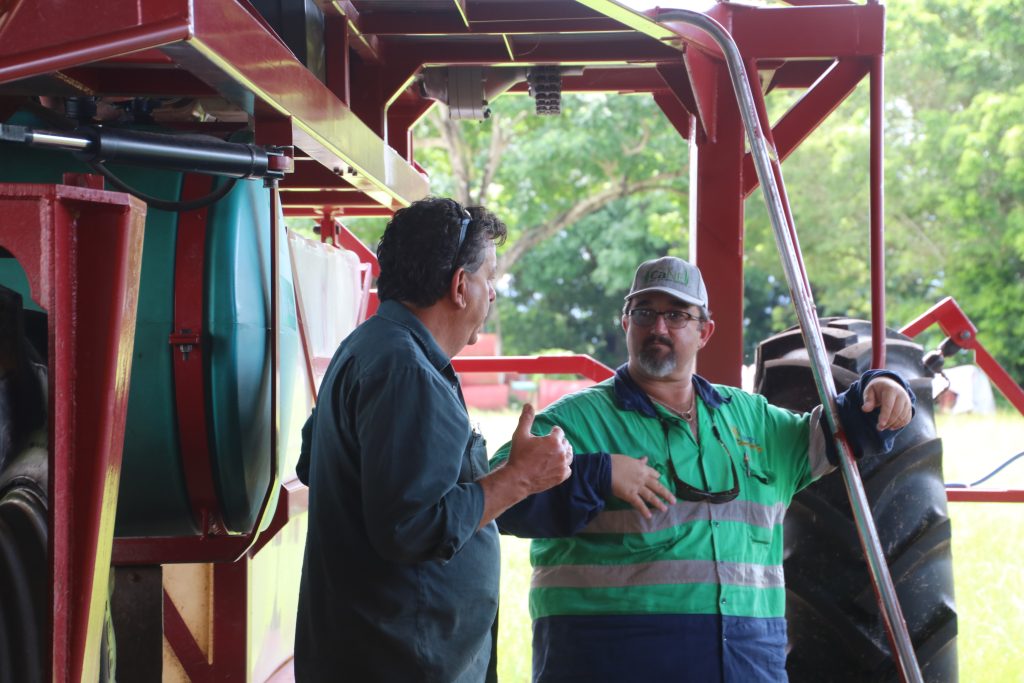
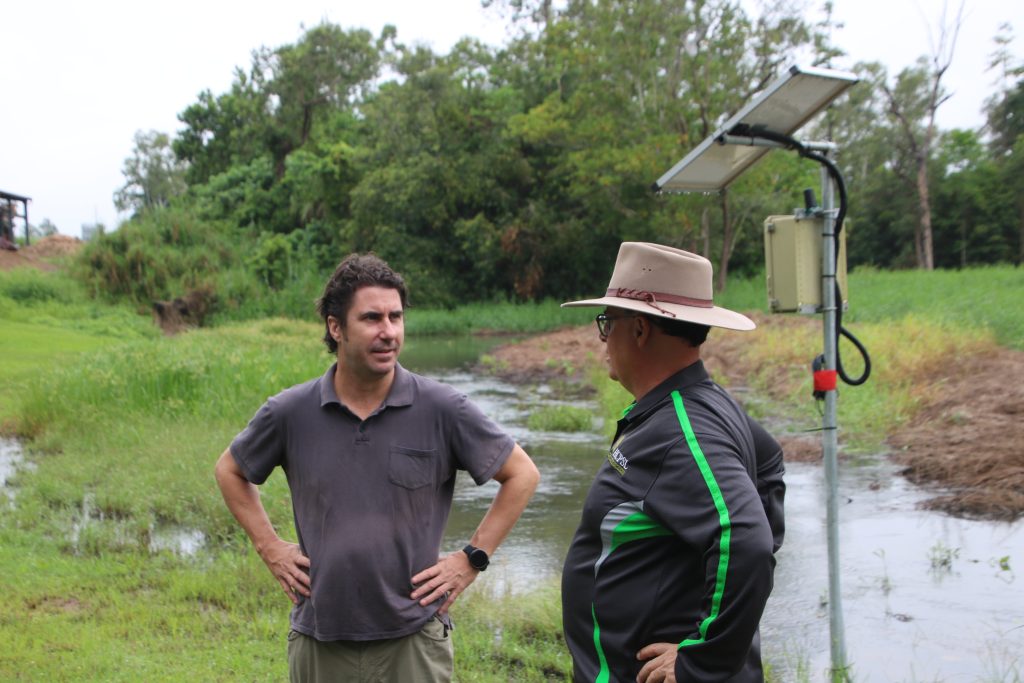

Project CaNE™ is funded by the partnership between the Australian Government’s Reef Trust and the Great Barrier Reef Foundation.
Recent Comments